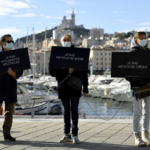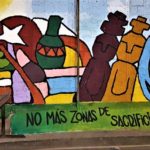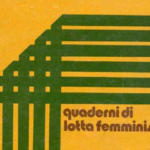
Against Noxiousness (1971)
Any specific struggle over environmental noxiousness is meaningful only if it is connected to a wider battle against the noxiousness of the capitalist organization of work.

Any specific struggle over environmental noxiousness is meaningful only if it is connected to a wider battle against the noxiousness of the capitalist organization of work.

In this perspective, the gray zones of labor, inside and outside capitalist enterprises, can be understood as zones of production of a divided subjectivity, a schizophrenic subjectivity. For me, it is not so much a question of identifying a subject as of understanding the processes of desubjectification: that is, the individual and collective processes that allow us to dispose of subjectivity as it is produced.

If, at the beginning of the pandemic we asked if we were facing a restructuring of class relations within the domestic sphere, that attempted to make households into a laboratory for capital, today we have many more elements to map that dispute. Exercising the feminist strike again, here and across the world, enables us to carry out a confrontation on that plane.

Along the lines of a continuously regenerated creative power, Rosa Luxemburg practiced the incessant coming-and-going from self-to-self, the back-and-forth of actions, polemics, and thoughts: in order to begin again.

The November 28 demonstration, by its numerical strength, its offensive character, its spirit of revolt and collective solidarity, was a demonstration of force reflecting a generalized social hostility not only against the #LoiSécuritéGlobale but also against the authoritarian tilt of the government, against state racism, against Macron and his world.

We must think of capitalist society as something in which there are a number of engines running at the same time; and we must take them all into account if we want political action with concrete meaning, in other words, if we want a chance to practically realize the goals that we seek.

The provisional hypotheses of 1972 appear to be less a ruptural betrayal than an experimental development (however controversial and contingent) in Tronti’s uniquely political theorizing of relations between workers’ struggle and capitalist development.

The October uprising in Chile is an example of what we would call a generalized passage from private malaise to collective revolt, a moment in which those sufferings that had been lived in domestic confinement, with guilt and loneliness, are brought out into public space, and understood as socially and politically produced, awakening a will to struggle as well as a mutual recognition between those who share experiences, feelings, fears, and common hopes.

Now there are compañeras who can speak, who can give a talk, who can talk about care work, about global care chains…This has emerged through our everyday practice. In Territorio Doméstico, we are all equals, we all have different knowledges and we share them, giving each other strength and supporting one another.

The Marxist feminism of rupture is a method, a theoretical-political practice that reads Marx in order to channel him towards urgent political action, identifying the weaknesses of the Marxian analysis of the reproduction of the workforce.